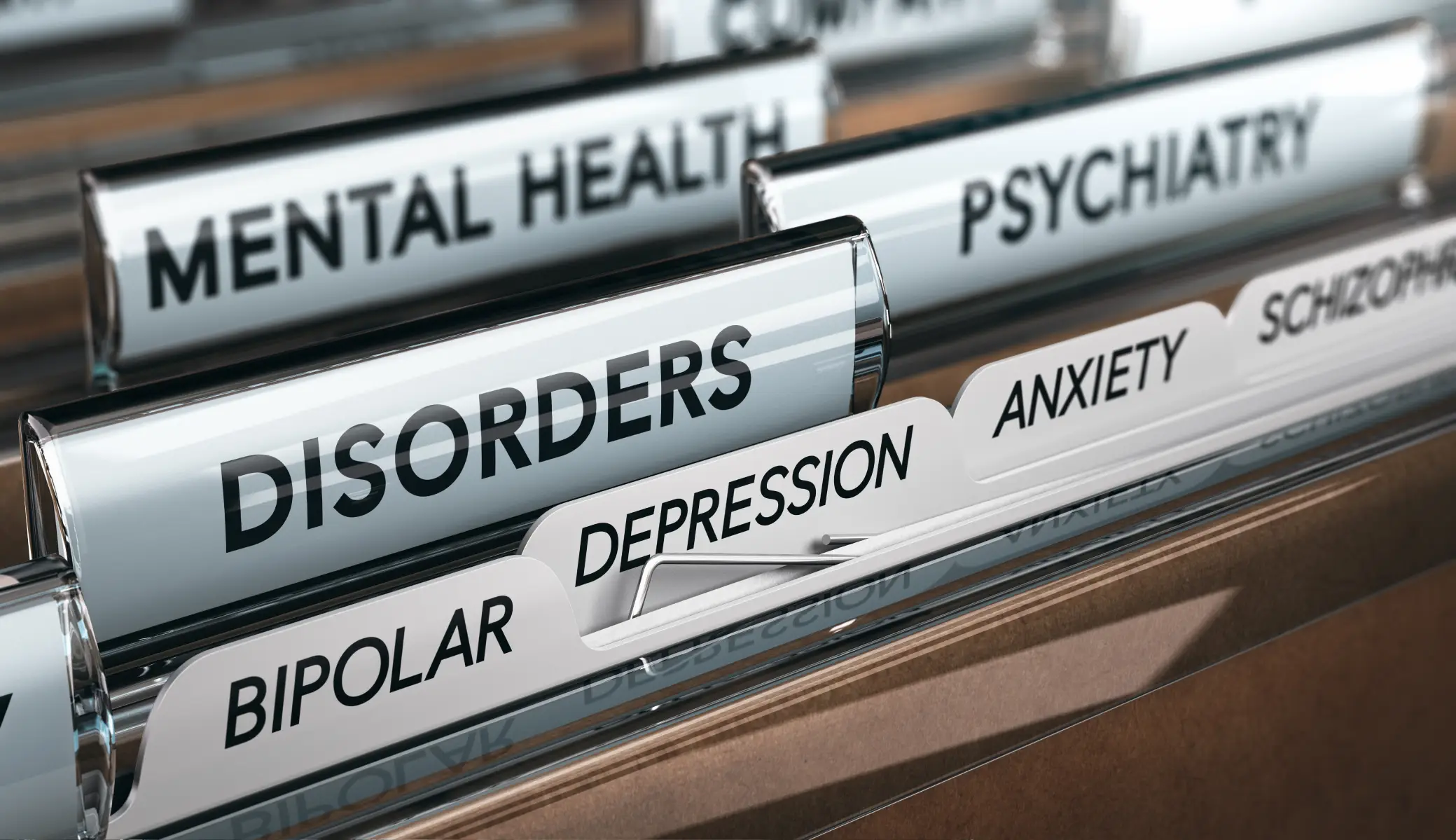Introduction: The Lasting Effects of Abuse on Mental Health
Abuse takes many forms, each leaving a profound and lasting impact on those who experience it. It is often carried out as a means of control or harm and can have devastating consequences on mental health, relationships, and overall well-being. To properly address and heal from the trauma caused by abuse, it is vital to identify the type of abuse experienced, its characteristics, and the way it affects the individual.
This whitepaper explores the 4 main types of abuse—physical, emotional, sexual, and neglect—and their unique impacts on mental health. By deepening our understanding of these trauma categories, we can better support survivors on their path to recovery and advocate for prevention efforts in society.
What is Abuse? A Broader Definition
Abuse refers to actions or patterns of behaviour that cause harm, whether physical, psychological, emotional, or social. It extends beyond immediate physical harm and encompasses behaviours or neglect that undermine an individual’s autonomy, self-worth, and mental health.
Core Characteristics of Abuse:
- Patterned Behaviour: Abuse often forms repetitive cycles, designed to maintain power or intimidation.
- Intentional or Neglectful Acts: Whether deliberate or through neglect, abuse results in harm.
- Violation of Trust: It frequently occurs in relationships where trust should exist (e.g., family, partners, institutions).
- Long-Term Impact: Abuse often leaves lasting trauma and complications for mental health.
Each type of abuse comes with its own signs, symptoms, and consequences. Below, we examine these in detail.
The 4 Types of Abuse
1. Physical Abuse
Physical abuse involves using force to cause harm to another person. Unlike accidents, it is a deliberate act aimed at inflicting pain, injury, or control through violence.
Examples of Physical Abuse:
- Hitting, punching, slapping, or kicking.
- Restraining or physically holding someone against their will.
- Physical intimidation (e.g., blocking exits or destroying objects to threaten).
- Shaking, choking, or burning a person.
Impact on Mental Health:
Physical abuse doesn’t only affect the body—it leaves deep emotional scars. Survivors may experience:
- Post-Traumatic Stress Disorder (PTSD): Hypervigilance, flashbacks, or anxiety triggered by memories of abuse.
- Depression and Low Self-Worth: Feeling helpless in the face of violence often undermines confidence.
- Trust Issues: Difficulty forming attachments or trusting others due to the violation of safety.
Real-Life Example:
Lucy, a 35-year-old survivor of domestic violence, recalls becoming extremely jumpy at loud noises years after escaping an abusive household. Her inability to feel safe led her to seek trauma-informed therapy for PTSD.
2. Emotional or Psychological Abuse
Emotional abuse—also referred to as psychological abuse—targets an individual’s sense of identity, self-worth, and emotional well-being through controlling or manipulative behaviour.
Examples of Emotional Abuse:
- Name-calling, humiliation, or belittling.
- Gaslighting (manipulating someone to doubt their perceptions of reality).
- Isolation from friends or loved ones.
- Threats, intimidation, or emotional blackmail (e.g., “If you leave me, I’ll harm myself”).
Impact on Mental Health:
Emotional abuse often results in deep psychological wounds that may not be immediately visible but have significant long-term consequences:
- Anxiety Disorders: Constant criticism and fear erode mental stability.
- Low Self-Esteem: Victims may internalise harmful messages, believing they’re unworthy or inadequate.
- Complex Trauma: Experienced through a prolonged pattern of manipulation and coercion, leading to emotional dysregulation and panic attacks.
- Difficulty in Relationships: Struggles with emotional intimacy or communication due to fear or mistrust.
Real-Life Example:
Michael grew up with a parent who constantly compared him negatively to other children, often calling him “useless.” As an adult, Michael struggles with imposter syndrome and social anxiety, often doubting his own accomplishments.
3. Sexual Abuse
Sexual abuse occurs when an individual is coerced or manipulated into unwanted sexual activity. It can occur at any age and within any relationship dynamic, leaving profound emotional and psychological trauma.
Examples of Sexual Abuse:
- Unwanted touching, kissing, or sexual contact.
- Sexual acts performed without consent, including under coercion or threat.
- Exploitation, such as forcing someone to engage in sexual activities for money or gain.
- Sexual abuse of children (commonly known as child sexual exploitation).
Impact on Mental Health:
Sexual abuse survivors often experience complex trauma that spans emotional, interpersonal, and psychological domains:
- PTSD: Nightmares, flashbacks, and a hyper-sensitivity to triggers relating to the assault.
- Shame and Guilt: Victims may falsely internalise blame for the abuse.
- Dissociation: A defence mechanism causing the survivor to “detach” from their emotions or body to cope with trauma.
- Sexual Dysfunction or Relationship Struggles: Fear, anxiety, or trust issues in romantic connections.
Real-Life Example:
Sarah, a 22-year-old survivor of childhood sexual abuse, finds it challenging to maintain long-term romantic relationships. Despite years of therapy, she battles feelings of unworthiness and struggles to reclaim confidence in her body.
4. Neglect
Neglect is often overlooked as a form of abuse, yet its impact is equally harmful. It occurs when a child’s or vulnerable person’s basic needs are intentionally ignored, leading to physical, emotional, or developmental harm.
Examples of Neglect:
- Failing to provide food, shelter, clothing, or medical care.
- Withholding emotional affection or support.
- Abandonment or lack of supervision.
- Denying access to education or social interaction.
Impact on Mental Health:
Neglect, especially during formative years, can disrupt healthy development and cause long-lasting emotional scars:
- Attachment Disorders: Difficulty forming bonds due to early lack of security or love.
- Feelings of Worthlessness: Internalising the belief that one doesn’t deserve care or attention.
- Chronic Mental Health Conditions: Depression and anxiety arising from unmet emotional needs.
- Behavioural Issues: Trouble with self-discipline or engaging in criminal behaviours as a result of inadequate boundaries during childhood.
Real-Life Example:
Tom, a 10-year-old subjected to neglect, often attended school without lunch or clean clothes. Now 22, Tom struggles with severe depression, self-esteem issues, and challenges with trusting others.
The Relationship Between Abuse and Trauma
All forms of abuse can lead to trauma—a deeply distressing or disturbing experience that overwhelms an individual’s ability to cope. Trauma resulting from abuse might be classified into several categories, depending on its characteristics.
Trauma Categories:
- Acute Trauma: Results from a single, high-intensity incident, such as a physical assault or sexual abuse event.
- Chronic Trauma: Stems from prolonged exposure to abuse, often associated with neglect or emotional abuse within dysfunctional families.
- Complex Trauma: Results from repeated exposure to violent or abusive environments, particularly during childhood or in relationships.
- Secondary Trauma: Affects individuals closely connected to someone who has been abused, such as parents, friends, or therapists deeply immersed in another’s recovery process.
Trauma doesn’t express itself in one uniform way. Survivors may feel physical symptoms (like insomnia or pain), emotional responses (like numbness or anger), or shattered interpersonal trust (difficulty forming meaningful relationships).
Strategies for Recovery and Healing
Healing from abuse and its associated trauma is a challenging yet achievable process. Recognising abuse, seeking help early, and accessing tailored recovery methods are essential aspects of healing.
1. Professional Support
- Therapists: Trauma-focused therapies such as Cognitive Behavioural Therapy (CBT), Eye Movement Desensitisation and Reprocessing (EMDR), or Somatic Experiencing help survivors process their abuse.
- Counsellors: Offer emotional regulation strategies and safe spaces for self-expression.
2. Developing Personal Coping Skills
- Mindfulness Practices: Techniques like meditation or yoga enhance emotional regulation.
- Journaling: Writing helps survivors process trauma by expressing thoughts, fears, and emotions.
- Art Therapy: Non-verbal outlets like painting or crafting allow survivors to communicate feelings they struggle to verbalise.
3. Building Support Systems
- Trusted Friends and Family: Cultivating safe, supportive relationships fosters healing.
- Support Groups: Organisations such as Survivors UK or Women’s Aid offer community-based recovery for abuse survivors.
- Helplines: Toll-free numbers like Childline (0800 1111) or the Samaritans (116 123) provide immediate support for those in distress.
Conclusion: Combating Abuse and Its Consequences
Abuse, in any form, has far-reaching effects that extend beyond the individual, impacting families and communities. Seeking safety, advocating for awareness, and addressing the underlying trauma are crucial steps in preventing long-term mental health repercussions. By understanding the 4 types of abuse—physical, emotional, sexual, and neglect—as well as their impacts, we empower survivors to seek healing and create a society committed to preventing harm and safeguarding vulnerable individuals.
Call to Action
If you or someone you know is experiencing abuse, don’t wait to act. Reach out to mental health professionals or helplines for immediate assistance. Together, we can build a future free of abuse—one grounded in respect, empathy, and care for all.










